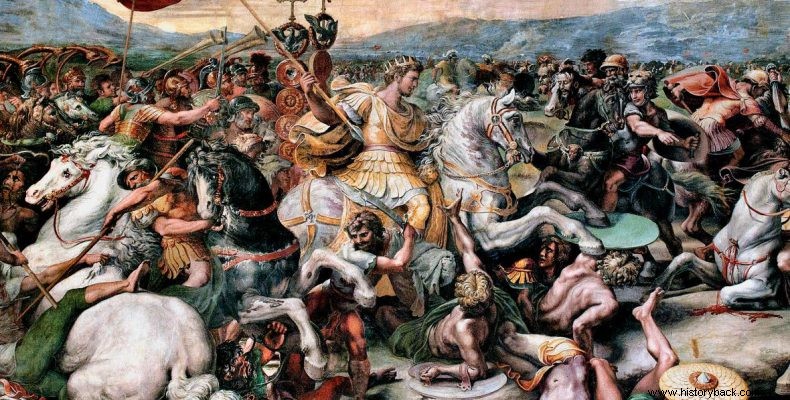
In 312 AD the Roman Empire was shaken by the conflict between Constantine (later the Great) and Maxentius. Constantine, although he had smaller forces than his opponent, had taken the initiative of the movements and had invaded Italy. Constantine took Milan but was unable to move towards Rome as a large opposing force was stationed in Verona under Maxentius' best general Ruricius Pompianus.
The latter initially tried to delay Constantine with his cavalry but failed and retreated to Verona. The city was built in such a place that the river Adige on both sides and allowed it to be supplied from the east. Constantine nevertheless crossed the river and camped on the eastern side of the city with the intention of cutting it off and besieging it.
Pompianos attempted an exit but was defeated. After this the general secretly left the city but soon returned at the head of a large army. In this way it was Constantine who found himself between two fires, essentially besieged, having on one side the hostile Verona and on the other the numerous army of Pompianus.
At this point Constantine showed his worth as a military leader. Instead of being cowed by the desperate situation he found himself in, he instead decided to attack! He left a small part of his forces opposite the walls of Verona and with the rest of the men moved to meet the enemy. In order to face the numerical superiority of his opponent, Constantine was forced to deploy all of his forces to the front line, leaving, essentially, no reserve. Only in this way was his forehead able to cover a space equal to that of his opponent.
It was afternoon when the battle began which continued until night fell. Darkness helped Constantine as chaos soon prevailed and Pompianus could not take advantage of his numerical superiority. But the battle was personally won by Constantine. As another Alexander he rushed on horseback against the enemies with sword in hand followed by his men, excited by his example.
Swords and staves clashed around him, arrows and javelins whizzed over his head but nothing hurt him. Instead, with eyes red from sleeplessness and fatigue, he himself cut with the sword. It was a night of terror. The savage slaughter continued until the morning. When the first rays of the sun brightened the day, the picture of destruction appeared. Nothing was left of Pompian's army. Constantine himself was covered in blood with his men, but he was victorious.
The brave Pompian himself had been killed in battle. Without resting himself and his men at all, Constantine immediately turned again towards Verona. When the defenders saw the victorious general and his men before them they simply surrendered. The victory was great and important. The road to Rome and the meeting with fate was now open for Constantine. The effeminate, according to the Epitome de Caesaribus, Maxentius learned the news with horror but decided to remain and wait in Rome. He would soon face Constantine at the Milvian bridge...
